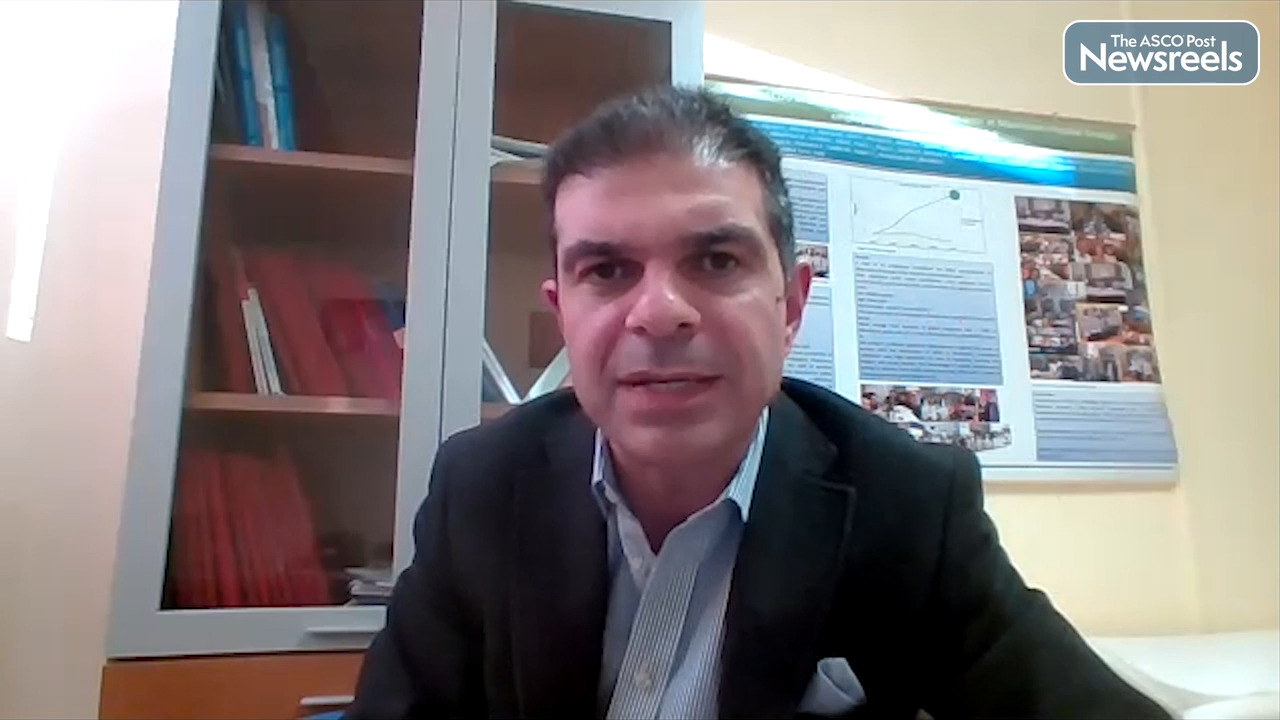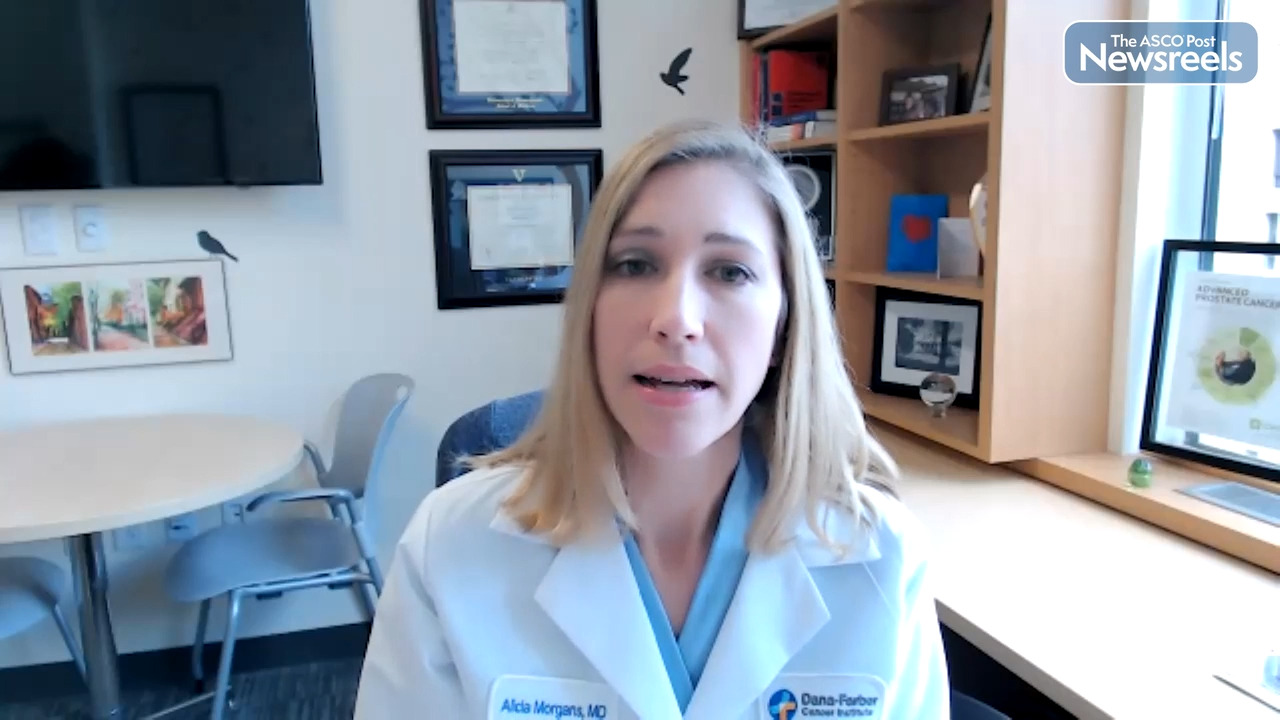Alfredo Berruti, MD, on Adrenocortical Carcinoma: Preliminary Study Results With Adjuvant Mitotane
2022 ASCO Genitourinary Cancers Symposium
Alfredo Berruti, MD, of Italy’s University of Brescia, discusses the first study to give adjuvant mitotane to patients with adrenocortical carcinoma, a rare disease with a high risk of relapse after radical surgery. Although theoretically this treatment may be clinically worthwhile, the findings suggest that the need for adjuvant mitotane should always be discussed on a case-by-case basis by the multidisciplinary team, and more study is warranted (Abstract 1).
The ASCO Post Staff
Massimo Di Maio, MD, of the University of Turin, discusses the Meet-URO12 study, which showed that maintenance niraparib plus best supportive care (BSC) did not prolong progression-free survival, compared with BSC alone, among patients with urothelial cancer that did not progress after first-line platinum-based chemotherapy.
The ASCO Post Staff
Jonathan E. Rosenberg, MD, of Memorial Sloan Kettering Cancer Center, discusses phase II findings from the BAYOU trial, which studied durvalumab in combination with olaparib for first-line treatment of platinum-ineligible patients with unresectable, stage IV urothelial carcinoma. Because secondary analyses indicated a potential progression-free survival benefit with this combination, there may be a role for PARP inhibitors in the treatment of advanced disease with homologous recombination repair mutation (Abstract 437).
The ASCO Post Staff
Alicia K. Morgans, MD, MPH, of Dana-Farber Cancer Institute, discusses findings from the largest digital survey conducted in patients with prostate cancer, allowing identification of unmet needs in the patient journey. Preliminary data suggest that lower rates of screening may correlate with higher rates of symptoms at diagnosis and potentially later-stage diagnosis.
The ASCO Post Staff
Matthew R. Zibelman, MD, of Fox Chase Cancer Center, discusses phase I/II results from a study of treatment-naive patients with advanced renal cell carcinoma who received a combination of the immunotherapy (IO) nivolumab and the tyrosine kinase inhibitor (TKI) axitinib. The findings suggest that the efficacy of this regimen is comparable to that of currently available IO/TKI combinations for this population and has a similar safety profile (Abstract 291).
The ASCO Post Staff
Petros Grivas, MD, PhD, of the University of Washington and Fred Hutchinson Cancer Research Center, discusses results from Cohort 3 of the TROPHY-U-01 study, which assessed sacituzumab govitecan-hziy in combination with pembrolizumab in patients with metastatic urothelial cancer who experienced disease progression after platinum-based regimens (Abstract 434).





